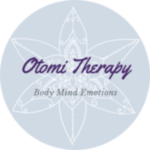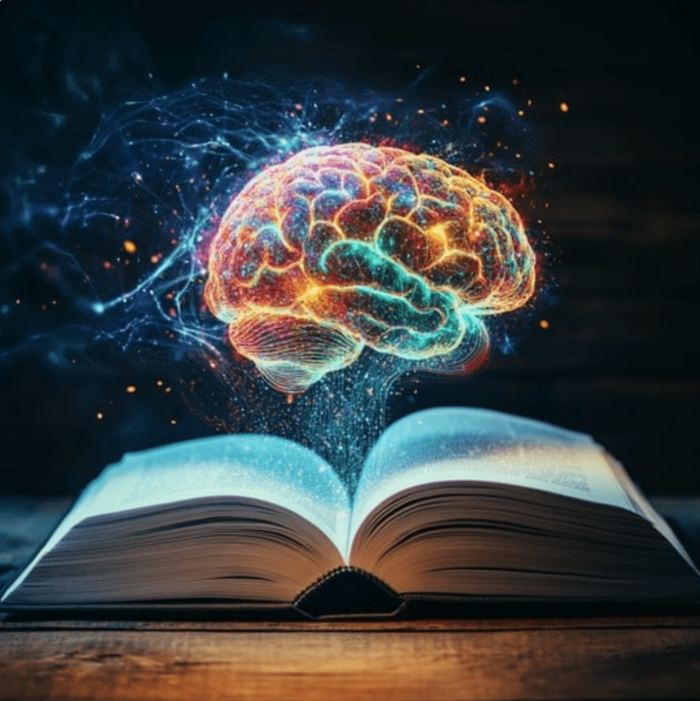Understanding High Potential Individuals
Insights and Strategies for Growth
High Potential individuals (HP)—often referred to as gifted adults—possess cognitive, emotional, and creative traits that set them apart.
Despite these strengths, many HP individuals face unique challenges, including heightened emotional sensitivity, overthinking, and difficulty finding their place in society.
This article explores the foundations of HP identification, the scientific basis for understanding these traits, and how psychotherapeutic approaches, including strategic psychotherapy and clinical hypnosis, can offer effective support.
Defining High Potential individuals: Characteristics and Criteria
Psychiatrists and psychologists often identify HP individuals based on specific traits and diagnostic tools.
The following characteristics frequently emerge in research:
- Cognitive Overexcitability:
A heightened ability to process and analyze complex information.
- Emotional Sensitivity:
Intense emotional reactions and empathy.
- Creative Divergence:
Unique problem-solving abilities and artistic expression.
- Perfectionism:
A tendency toward high standards that can lead to self-criticism.
Scientific studies, such as those by Dabrowski (1967) on overexcitabilities, provide a theoretical framework for understanding these traits. Standardized assessments, including IQ tests and personality inventories, are often used in diagnosis but are supplemented by clinical interviews and qualitative evaluations.
Detailed Characteristics of High Potential Individuals
To identify HP individuals, psychotherapists often look for traits across several dimensions:
1. Cognitive Characteristics
- High Intellectual Ability: Exceptional problem-solving skills and rapid comprehension of complex concepts.
- Advanced Memory: Strong recall abilities, enabling connections between diverse ideas.
- Fast Information Processing: Quick thinking, which can sometimes lead to frustration when others cannot keep pace.
- Abstract Thinking: Excelling in recognizing patterns and imagining innovative solutions.
2. Emotional Characteristics
- Emotional Intensity: Experiencing emotions deeply, such as profound joy or intense sadness.
- Heightened Empathy: Intuitive understanding of others’ feelings, sometimes leading to emotional overwhelm.
- Inner Conflict: Struggles with decision-making due to perceiving multiple perspectives.
- Perfectionism: Unrealistically high self-standards, often resulting in self-criticism.
3. Creative Characteristics
- Divergent Thinking: Generating original ideas and approaching problems unconventionally.
- Imagination: A vivid inner world and frequent daydreaming.
- Curiosity: A desire to explore new ideas and experiences.
4. Behavioral Characteristics
Overexcitabilities (Dabrowski):
- Psychomotor: High energy and need for mental or physical stimulation.
- Sensory: Enhanced sensitivity to sounds, smells, or textures.
- Emotional: Intensified emotional responses.
- Intellectual: Persistent questioning and love of ideas.
- Imaginational: Rich fantasy life and daydreaming.
Asynchronous Development:
Intellectual growth often outpaces emotional or social development.
- High Levels of Focus:
Intense concentration on engaging tasks, coupled with boredom for uninteresting ones.
5. Social Characteristics
- Sense of Justice: A strong drive to advocate for fairness.
- Misunderstanding by Peers: Their intensity and interests may lead to feelings of alienation.
- Leadership Potential: Vision and ability to inspire, but may struggle with collaboration.
- Sensitivity to Criticism: Feedback can feel personal, leading to anxiety or withdrawal.
6. Psychological Patterns and Challenges
- Imposter Syndrome: Doubting competence despite clear abilities.
- Overthinking and Rumination: Deep analysis can result in cycles of unproductive worry.
- Difficulty Setting Boundaries: Empathy and drive may lead to overcommitment or burnout.
- Existential Anxiety: Questioning life’s meaning and purpose due to philosophical depth.
Psychotherapists use clinical interviews, assessments, and collaboration with educators or family to identify these traits while distinguishing HP characteristics from disorders like ADHD or anxiety.
Challenges Faced by High Potential Individuals
While their unique abilities are assets, HP individuals often encounter the following difficulties:
- Social Alienation: Feeling misunderstood or disconnected from peers.
- Anxiety and Burnout: Struggling with high expectations and an overactive mind.
- Identity Confusion: Difficulty integrating their multifaceted abilities into a cohesive self-concept.
- Emotional Dysregulation: Intense feelings can lead to overwhelm and exhaustion.
These challenges often stem from a mismatch between the individual’s internal experiences and societal norms, creating stress and psychological strain.

How Strategic Psychotherapy and Clinical Hypnosis Can Help High Potential Individuals
Strategic psychotherapy and clinical hypnosis, particularly within the Ericksonian tradition, are powerful tools for helping HP individuals navigate their challenges. These approaches align well with cognitive-behavioral principles and can be tailored to the needs of HP clients.
Reframing Perfectionism:
Through metaphors and targeted interventions, strategic psychotherapy helps individuals reinterpret perfectionism as a strength rather than a limitation. For instance, viewing mistakes as stepping stones to mastery can reduce self-criticism.
Building Emotional Resilience:
Clinical hypnosis promotes relaxation and teaches individuals to manage intense emotions effectively. Techniques such as anchoring and visualization can help create internal calm.
Fostering Identity Integration:
Hypnosis facilitates deep exploration of self-concept, allowing HP individuals to align their cognitive and emotional strengths with a meaningful life purpose.
Stress Reduction
Tailored made hypnosis, grounded in everyday metaphors, can reduce overthinking and promote a sense of balance.
Integrating Body-Mind Approaches
As HP individuals often experience a strong mind-body connection, incorporating body-oriented therapies enhances the effectiveness of psychotherapy and hypnosis.
Somatic practices, mindfulness, and creative expression (e.g., dance or painting) can help ground clients and foster emotional regulation.
Practical Steps for HP Individuals Seeking Support
- Seek a Qualified Therapist:
Working with a professional experienced in strategic psychotherapy and clinical hypnosis ensures that interventions are tailored to your unique needs.
- Engage in Self-Reflection:
Journaling and creative outlets provide safe spaces for exploring your emotions and thoughts.
- Practice Mindfulness:
Techniques like focused breathing can help manage stress and increase self-awareness.
- Leverage Your Strengths:
Recognizing your cognitive and creative abilities as assets fosters a growth-oriented mindset.
Further Reading
- Dabrowski, K. (1967). The Theory of Positive Disintegration.
- Silverman, L. K. (2013). Giftedness 101.
- Webb, J. T. et al. (2005). Misdiagnosis and Dual Diagnoses of Gifted Children and Adults.
References
American Psychological Association (APA). (2020). Neurodivergence: Definitions and Current Research. Retrieved from: https://www.apa.org
Cortese, S., et al. (2021). Advances in the treatment of ADHD: Insights from neuroscience. The Lancet Psychiatry, 8(10), 877-888. doi:10.1016/S2215-0366(21)00139-5
Beaty, R. E., Benedek, M., Kaufman, S. B., & Silvia, P. J. (2016). Default and executive network coupling supports creative idea production. Scientific Reports, 6, 10964. doi:10.1038/srep10964
Estes, M. L., & McAllister, A. K. (2015). Immune mechanisms in autism spectrum disorder. Nature Reviews Neuroscience, 16(6), 469-485. doi:10.1038/nrn3978
Jung, R. E., & Haier, R. J. (2007). The Parieto-Frontal Integration Theory (P-FIT) of intelligence: Converging neuroimaging evidence. Behavioral and Brain Sciences, 30(2), 135-154. doi:10.1017/S0140525X07001185
Neubauer, A. C., & Fink, A. (2009). Intelligence and neural efficiency: A review. Neuroscience & Biobehavioral Reviews, 33(7), 1004-1023. doi:10.1016/j.neubiorev.2009.04.001
Shaywitz, S. E., et al. (2008). Neural systems for compensation and persistence: Young adult outcome of childhood reading disability. Biological Psychiatry, 64(5), 407-414. doi:10.1016/j.biopsych.2008.02.024
Wang, T., et al. (2022). Exploring the psychological and emotional traits of gifted individuals through neural and behavioral studies. Frontiers in Psychology, 13, 736487. doi:10.3389/fpsyg.2022.736487
Pfeiffer, S. I., & Jarosewich, T. (2007). Gifted Rating Scales Manual. Psychological Assessment Resources, Inc.
Rinn, A. N., & Bishop, J. (2015). Gifted Adults: A Systematic Review and Analysis of the Literature. Gifted Child Quarterly, 59(3), 213-235. doi:10.1177/0016986215586202
Cross, T. L., & Cross, J. R. (2015). Maximizing potential: A school-based conception of psychosocial development. High Ability Studies, 26(1), 20-30. doi:10.1080/13598139.2015.1038236
Karimi, H., et al. (2023). Social and emotional characteristics of gifted children: A systematic review. Educational Psychology, 43(2), 109-125. doi:10.1080/01443410.2022.2139275
Webb, J. T., Gore, J. L., Amend, E. R., & DeVries, A. R. (2005). Misdiagnosis and Dual Diagnoses of Gifted Children and Adults: ADHD, Bipolar, OCD, Asperger’s, Depression, and Other Disorders. Great Potential Press.
Silverman, L. K. (2013). Giftedness 101. Springer Publishing Company.
Dabrowski, K. (1967). The Theory of Positive Disintegration. Little, Brown.
Uddin, L. Q., et al. (2013). Salience network-based classification and prediction of symptom severity in children with autism. JAMA Psychiatry, 70(8), 869-879. doi:10.1001/jamapsychiatry.2013.303
Korn Ferry Institute. (2023). High Potentials in Flux: The Changing Landscape of Talent Management. Retrieved from: https://www.kornferry.com
Learn More About Our Services
At BodyMind Therapy, we specialize in supporting HP individuals through tailored therapeutic approaches. Our integrative methods combine strategic psychotherapy, clinical hypnosis, and body-oriented practices to help you thrive. Visit our services page to learn more and book a consultation.
By addressing the unique needs of HP individuals, we can unlock their potential and empower them to lead fulfilling, balanced lives. If you’d like to explore how these approaches can support you or someone you know, feel free to reach out for a personalized consultation.

